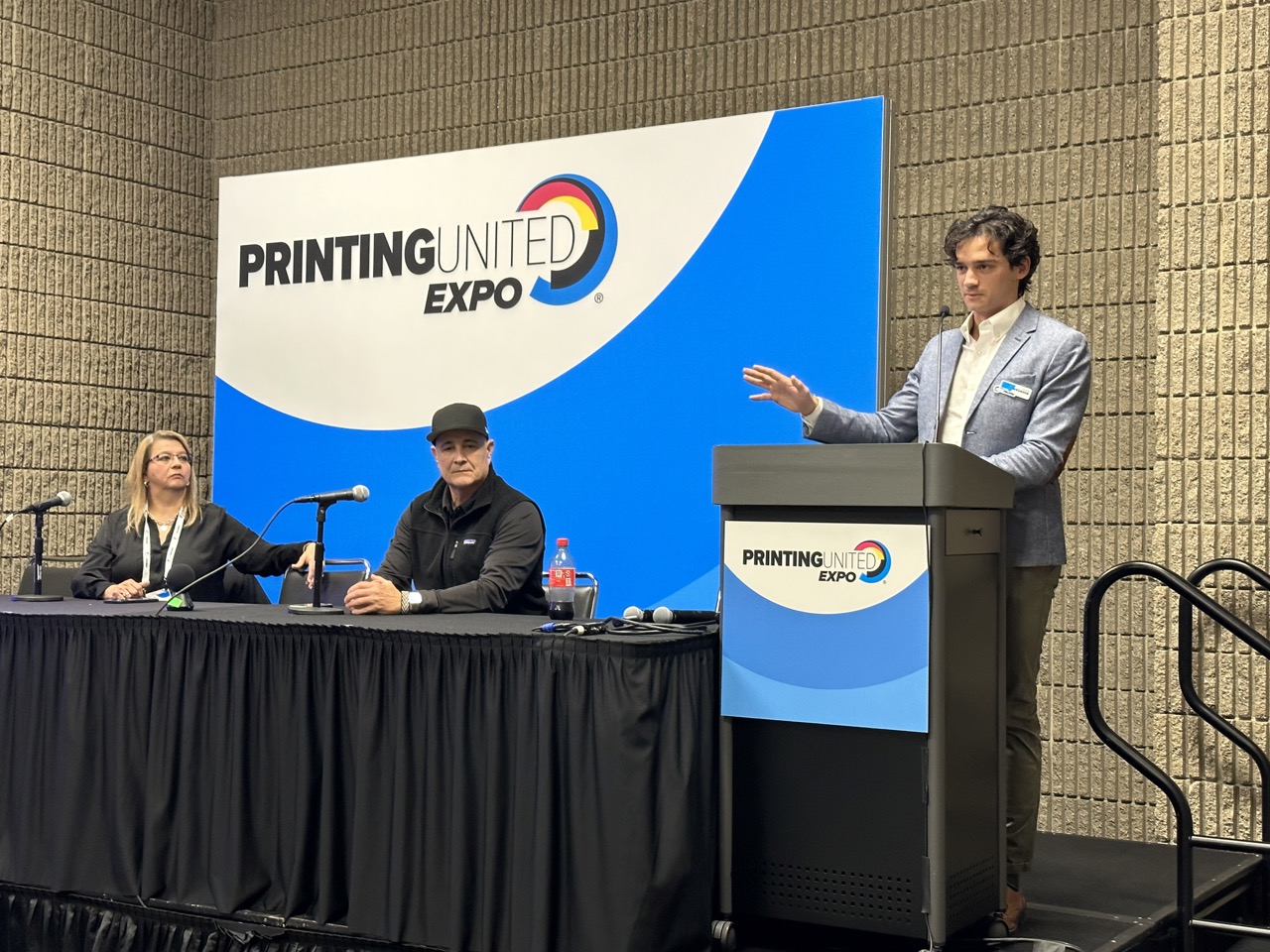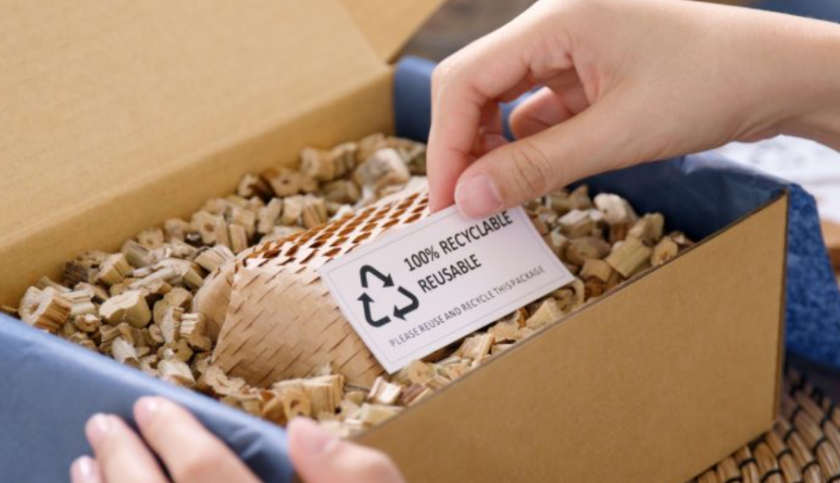 As buying habits are skewing greener and greener, especially as younger generations age into being the primary targeted end-user demographics. Millennials and Gen Zers want products that they can feel good about using. For suppliers, decorators, and distributors, it’s crucial to learn about how your product offerings can be more environmentally friendly.
As buying habits are skewing greener and greener, especially as younger generations age into being the primary targeted end-user demographics. Millennials and Gen Zers want products that they can feel good about using. For suppliers, decorators, and distributors, it’s crucial to learn about how your product offerings can be more environmentally friendly.
A session yesterday at PRINTING United Expo moderated by Print & Promo Marketing content director Brendan Menapace covered how promotional apparel and hard goods are evolving alongside innovative new materials and recycling capabilities to create eco-friendly promotions that not only land with end-users but do genuine good for the world along the way.
Menapace was joined by Julie Brannen, director of regional sales and sustainable solutions at Monadnock Paper Mills; and Mark Sunderland, vice president of innovation and technology, textile engineer and strategist for Thomas Jefferson University.
Social Responsibility Isn’t An Option Anymore
Brannen said that one thing she’s noticed shift over the years when it comes to environmentalism is the fact that being FSC certified is no longer just a bonus, but a requirement.
“I worked for a printer that was third in the country to become FSC-certified, and that’s back in 2005 2006,” she said. “It was an option back there back then. And what I’m seeing now is the certifications. The sustainability social responsibility initiatives do not seem to be an option anymore for people to maintain their client base.”
Sunderland echoed Brannen’s sentiment, saying that one thing that’s constant in this industry is change, and that there are certifications distributors, suppliers, and manufacturers need to meet, and sometimes they’re not regulated by the government, but regulated by the customers they serve because customers are not waiting for the government to make decisions for them. Instead they’re taking their own initiative and getting ahead of the curve.
Meeting The Demand For Environmentalism
Sunderland and Brannen both expressed difficulties when meeting the environmental demands of customers and consumers.
“Today, you don’t just have to meet environmental demand, but you also have to meet the carbon footprint standards and at the end of the day, it’s difficult because you’re trying to meet these environmental demands or these carbon footprint demands, and you’re trying to make the best possible product,” Sunderland said.
Brannen expressed something similar, saying, “In our world of creation of specialty products, people want the product to perform at the highest levels, we call that durability, but at the same time, they wanted to recycle break down, and compost. And those are oftentimes completely two different ends of the spectrum.”
To achieve this durability, Brannen said that Monadnock constantly sources materials that have the lowest impact impact on the environment and that the best and most eco-friendly materials are often adhesives.
Don’t Turn Green Into Brown
Sunderland warned that going to extremes to go green might actually be more detrimental to the environment.
“In your quest for newer greener materials, you don’t want to turn something green into brown, meaning the carbon footprint it takes to get at those new biomaterials or those new environmental substrates could oftentimes lead to a larger carbon footprint than the one you intended to,” Sunderland said.
Brannen agreed, saying that when soy-based inks were in high demand, people just wanted the most sustainable option without realizing what it was doing to the indigenous population where soy was being harvested.
Where to Start
As the session began to wind down, Menapace asked the panelists where distributors and manufacturers can start when it comes to hopping on the environmentalism train.
“From a manufacturing point of view then you should look at what you’re doing right now,” Brannen said. “What can you reduce, what can you do, and not overdo? What can you forecast, what can you plan for so that you’re not doing things at the last minute.”
To conclude, Sunderland reminded the audience to pick their battles.
“You’re not going to get every win in the playing field of environmental or sustainability or carbon footprint,” he said. “You just find find where you can win the most and and concentrate on that.”


